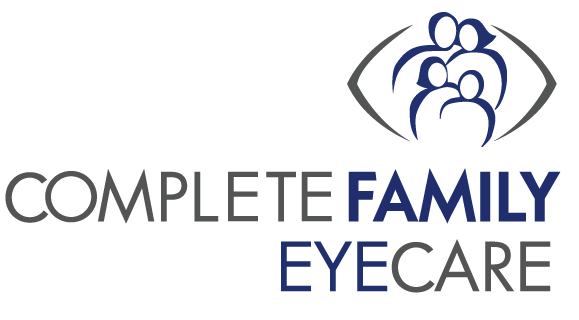
As the year comes to a close, it’s an ideal time to schedule an eye exam and make the most of your insurance benefits before they expire. Many vision insurance plans and Flexible Spending Accounts (FSA) or Health Savings Accounts (HSA) have a "use it or lose it" policy, which means that if you don’t use the funds in your account for vision care, they won’t roll over to the new year.
Below, our Complete Family Eye Care eye care team at McKinney will cover the benefits of scheduling an eye exam before year-end and explain how you can use your FSA and HSA dollars to keep your eyes healthy.
Why Year-End Eye Exams in McKinney Are Important
Scheduling an eye exam before the year ends ensures you’re using the benefits you’ve already paid for. Many insurance plans cover one annual comprehensive eye exam, along with a portion of the cost for glasses or contact lenses.
In addition to maximizing benefits, end-of-year eye exams are beneficial for:
- Monitoring Vision Changes: As vision can change gradually over time, a regular eye exam ensures your prescription is up-to-date and your eyes are functioning optimally.
- Detecting Eye Diseases Early: Comprehensive eye exams can detect eye diseases like glaucoma, macular degeneration, and diabetic retinopathy in their early stages, even before you notice symptoms. Early detection can lead to more effective management and treatment.
- Preventing Vision-Related Discomfort: Many people experience eye strain, especially those who spend hours on digital screens. An eye exam can help address these symptoms and provide relief solutions.
Using FSA and HSA Benefits for Eye Care
FSAs and HSAs are tax-advantaged accounts that can be used to pay for eligible healthcare expenses, including vision care. Each has unique features and rules:
1. Flexible Spending Account (FSA)
FSAs are commonly offered through employer-sponsored health plans. The major benefit of an FSA is that contributions are made pre-tax, which reduces your taxable income. However, FSA funds typically do not roll over to the next year. Most FSAs require you to use all funds by December 31, although some plans may offer a grace period or allow a small carryover amount.
Eligible vision-related expenses that can be covered by an FSA include:
- Eye Exams: Your FSA can cover the cost of a comprehensive eye exam, ensuring that you start the new year with optimal vision health.
- Prescription Glasses: FSA funds can be used toward new frames and lenses, including progressive lenses, blue light filters, and other customizations.
- Contact Lenses and Supplies: If you wear contacts, your FSA can cover the cost of lenses, lens solution, and cleaning supplies.
- Prescription Sunglasses: If you’re looking for sun protection with prescription lenses, your FSA can be used for prescription sunglasses.
2. Health Savings Account (HSA)
HSAs are available to individuals with high-deductible health plans (HDHPs) and offer flexibility similar to FSAs but with key differences. Contributions to an HSA are also pre-tax, lowering your taxable income. Unlike FSAs, HSA funds roll over indefinitely, allowing you to save for future healthcare expenses.
For eye care, HSA funds can be used for the same expenses as FSAs, including exams, prescription eyewear, and contact lenses. The ability to save and grow HSA funds tax-free over time makes it a valuable tool for long-term healthcare planning, especially for those who anticipate significant vision care expenses in the future.
How to Maximize Your Vision Benefits Before Year-End
If you have vision insurance, an FSA, or an HSA, here are some tips to help you make the most of these benefits before December 31:
1. Schedule Your Eye Exam Now
The end of the year is a busy time for eye care clinics, as many patients are eager to use their benefits before they expire. Scheduling your appointment early ensures you’ll secure a convenient time and make the most of your benefits without last-minute stress.
2. Update Your Prescription Glasses or Contact Lenses
If your vision has changed or your current prescription is outdated, now is the perfect time to get new glasses or contacts. Whether you need single-vision lenses, multifocal lenses, or prescription sunglasses, updating your eyewear with your FSA or HSA funds helps you start the new year with clear, comfortable vision.
3. Purchase Backup or Specialty Eyewear
If you’ve been considering a second pair of glasses, prescription sunglasses, or specialty eyewear, your FSA and HSA funds can cover these as well. A backup pair of glasses can be helpful in case of emergencies, while prescription sunglasses provide eye protection and visual clarity outdoors.
4. Stock Up on Contact Lens Supplies
If you wear contact lenses, stocking up on lenses, solution, and cleaning supplies is a practical way to use any remaining FSA or HSA funds. These items are FSA- and HSA-eligible, and purchasing them now can help you avoid out-of-pocket expenses next year.
What to Expect During a Year-End Eye Exam at Our Clinic
When you book an eye exam at our clinic, you’ll receive a comprehensive evaluation tailored to your vision needs. Our eye care team will assess your vision prescription, screen for any eye health issues, and discuss any symptoms or concerns you may have.
Additionally, our team is knowledgeable about insurance benefits and FSA/HSA guidelines, so we can answer your questions and help you maximize your eye care savings.
Don’t Let Your Benefits Go Unused—Book Your Eye Exam Today!
Using your vision benefits and FSA/HSA funds before they expire is a smart way to invest in your eye health without additional costs. By scheduling a year-end eye exam, you’re not only ensuring optimal vision and eye health but also making the most of the benefits you’ve already paid for. Contact us today to book your appointment and start the new year with clear, healthy vision.
